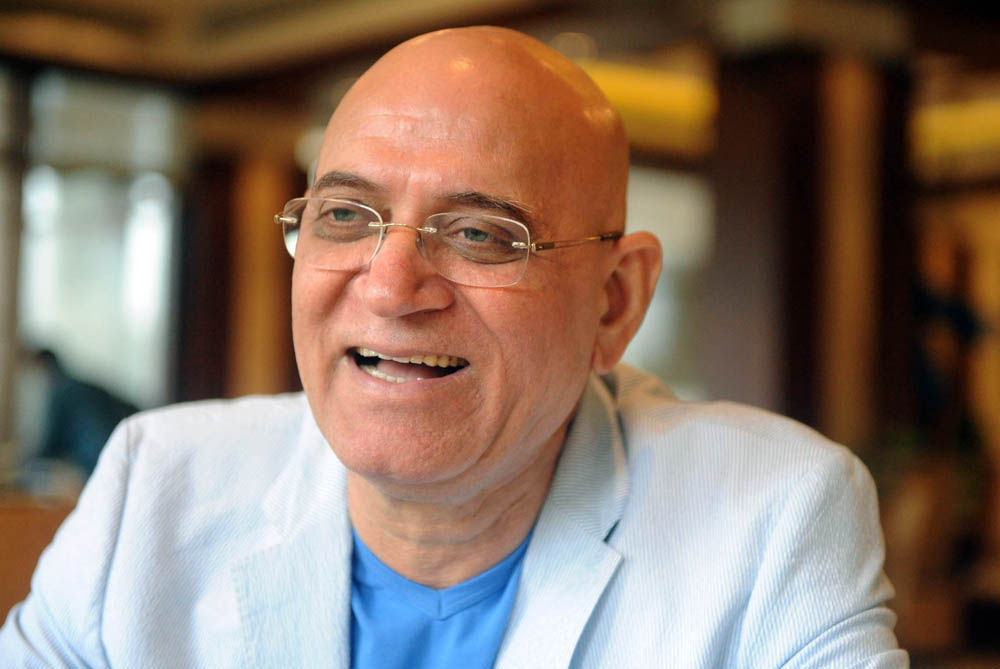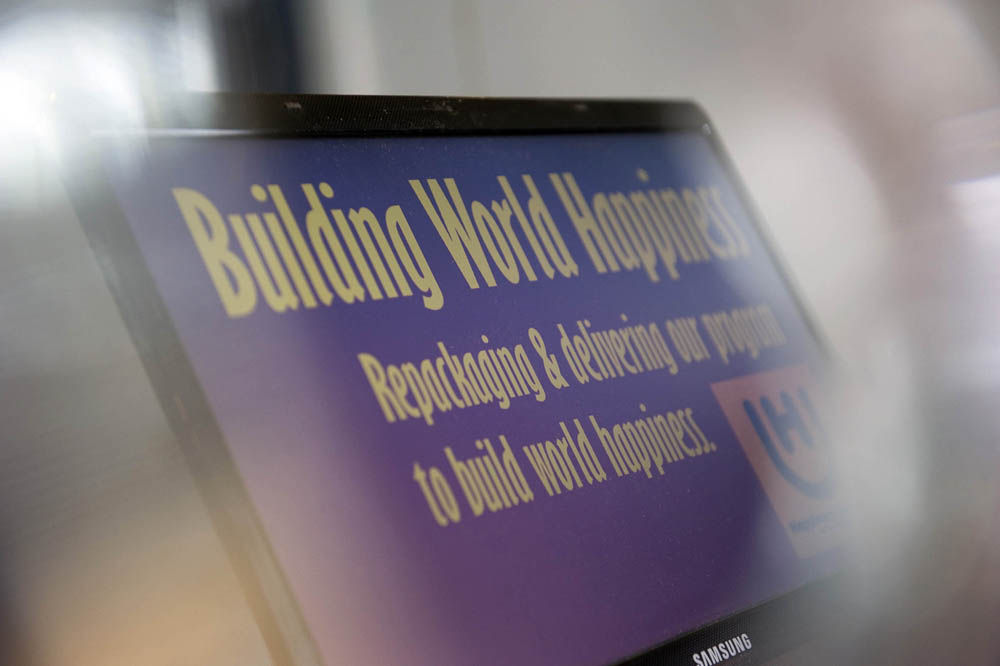Laughterologist Bill Gee laughs all the time, even when discussing serious topics such as world happiness.
"I've always laughed a lot. My friends used to rag me because, even in a crowded place, they could hear me," Gee says, releasing another disconcertingly deep belly laugh. "They tell me that when they walk in they always know if I am in a place, because I laugh a lot."
His unexpected laughter can seem a little jarring, even inappropriate at times. But this American with the fluffy walrus moustache and white ponytail has a remarkable ability to lift the mood around him. He seems to possess a unique gift to make people laugh, and his laughter becomes infectious after you have been around him for a while.
As Gee explains how people can manage stress and depression and learn to practise aerobic laughter, build their "happiness intelligence" and implement positive psychology in their daily routine, it suddenly seems possible that we could all start laughing again, even in South Africa, where poverty, politics and crime are no laughing matter.
It explains why the laughter guru has made another pit stop in his diverse career path and launched a Happiness University in Cape Town, positioning his team in the newly revitalised suburb of Woodstock.
Creative surroundings
Surrounded by a hive of creative energy in the über-hip Woodstock Exchange building, Gee's dedicated pursuit of world happiness doesn't seem out of place.
We discuss his latest venture in a rented glass cubicle he has booked for two hours, and nobody objects to the loud laughter erupting from the large man in the loose-fitting top and trousers.
Laughter has seen him through tough times. A trained architect, Gee says he has travelled to many countries, specialising mostly in design and marketing. Eventually even he, with his remarkably sunny disposition, became "burnt out".

Laughter Yoga Movement founder Dr Madan Kataria. (AFP)
"I spent three years recovering on a small tropical island off the coast of Thailand. Afterwards, I started working again, and I moved to Malaysia, because there were more business opportunities there.
"One thing you learn when you work in different countries is to do what the locals can't do. I was working in tourism and marketing online, and I noticed that Bali was getting a lot of yoga tours. I discovered, much to my surprise, that yoga was the fastest-growing sector in tourism."
Life-changing meeting
After meeting Dr Madan Kataria, the founder of the worldwide Laughter Yoga Movement, Gee became a director of the organisation and based himself in India.
"That was unexpected and amazing. But I was bored with marketing. 'Can you sell this?' they would ask, and I would say, 'Yes, I can sell it.' But this was different because it was an opportunity to make the world a better place. I hadn't known that this is what I wanted to do, but I found that I was galvanised and energised. Before, I was working because I needed the money," he says, taking a quick laugh break.
"I suddenly had an amazing new energy. So I joined Dr Kataria, who is a medical doctor. I had to rewrite all the training manuals. It was very widespread in India, and there were probably thousands of laughter clubs.
"It spread to about 60 countries. It was a wonderful experience for me, and I was able to talk to people around the world about how laughter benefited people."
Gee became fascinated by the stress reduction and physiological benefits of laughter, but he wanted to focus on the science of the therapy. As he had visited South Africa previously to train people in laughter yoga, he returned to the country when he left the organisation.
Healing programme
Eventually, he ended up leading a team in Klerksdorp that was researching and developing a programme, Healing with Happiness, which combined aerobic laughter and positive psychology to help HIV and Aids caregivers and their patients, as well as vulnerable children and orphans.
Memory Matanda, a registered psychologist in Zimbabwe who is trying to obtain registration in South Africa where she now lives, acted as a consultant for the programme.
"The results were incredible," she says on the phone from Johannesburg. "It is probably not right for Southern Africa, where people are focusing on bread and butter issues, but I would love to take it to Zimbabwe.
"I saw the changes it brought to people's lives, and the lowering of stress levels."
When the recession hit in 2008, funding for Gee's programme evaporated. After spending years in Johannesburg, he decided it was time to move to experience the beauty of the Western Cape.

The Happiness University aims to 'to build world happiness'. (David Harrison, M&G)
In the past 10 years, he says, he and others have discovered knowledge, tools and programmes that anyone can apply to control their own happiness, stress, even depression.
"Our mission is to make this practical knowledge accessible to everyone," Gee says. "That is why we are nonprofit, nonpolitical, nonreligious, and open to all."
Although anybody can feel down, angry or depressed, he believes an individual's happiness is within his or her control.
"It is not as if there is some dude with a remote control saying how we are going to feel tomorrow," Gee says. "Our happiness is up to us. New developments in brain science and positive psychology actually enable us to empower people to take charge of their lives. That is huge.
"If somebody had told me this when I was a kid, then my life would have been so different. If they had taught me that stress is a choice, if they had taught me that happiness is a choice, if they had taught me that anger is a choice, and how these things affect my physiological and mental ability, immune system and mental health, things might have been so different."
No accreditation
As a nontraditional educational establishment, Gee says his Happiness University courses are currently not accredited.
"Accreditation is an interesting issue that we are considering. Next year, we will move to accredit courses for continuing professional development. One of our strategies will be to deliver short courses through licenced universities as modules that can form part of larger courses."
In the meantime, spreading the tools for happiness is his focus, and Gee runs workshops in Cape Town.
"The Happiness University is not a traditional university," he says, letting out another hearty laugh. "We are there to get this information out of research papers and into people's lives as quickly as possible. Our mission is to build world happiness."
Even faking it makes you feel better
At first it seems as if the Mail & Guardian team is off the hook and can just observe and photograph everybody else being silly.
Bill Gee's colleagues, Julia Ranzani and Candice Arries, work with him as he demonstrates the art of aerobic laughter.
But Gee insists we must participate. "If you are here, you have to join in," he says, bellowing with laughter. "Now we all repeat this twice. And it goes like this …"
We start with warm-up exercises, and clap together and chant twice, in between laughs, "very good, very good, yeah" as we throw up our arms.
"Most people are highly stressed," he says. "So you are going to pump down twice and push all that air out."
Again we clap and repeat: "Very good, very good, yeah."
"If anybody is feeling a little dizzy, that is your brain saying thank you," says Gee, who seems a little out of breath. "We are designed to be fully oxygenated, and your organs and your blood are not, because we drive around and use controls. You have just filled your major organs up with oxygen. Now we are going to do our clapping in a different way, and don't forget to shake your booty …"
We all move around, shouting loudly: "Ho ho, ha ha ha," making sure to make eye contact.
The laughing exercises turn out to be the difficult part. There is nothing natural about it, it seems.
"If you don't feel like doing it, it's okay. You just fake it," Gee says.
This is followed by unspontaneous bursts of laughter, and we all join in. The fabulously serene Ranzani is now laughing hysterically. From her, the forced laughter seems effortless.
We pick imaginary flowers off the floor. "The thing about laughter flowers, when you smell them, they make you laugh," Gee says, and this sets them all off again. Funny thing is, you do feel a little lighter at the end of it all.